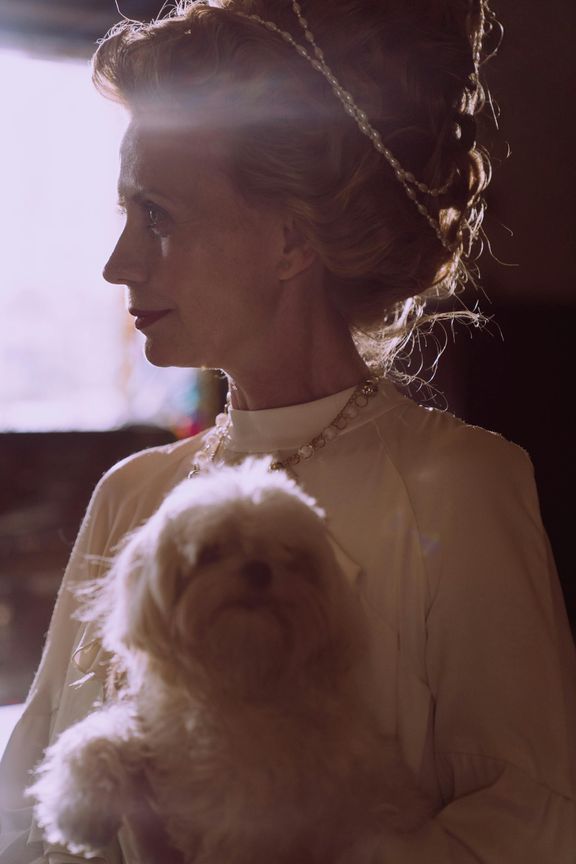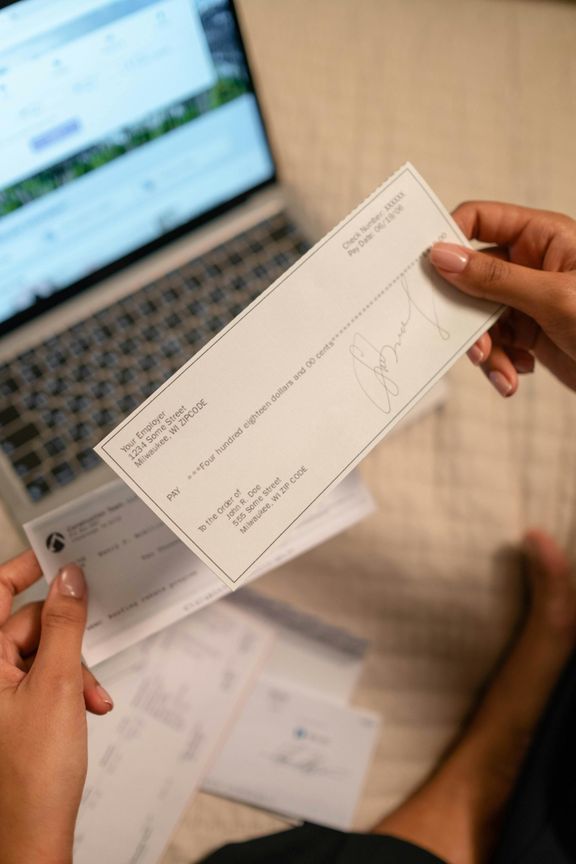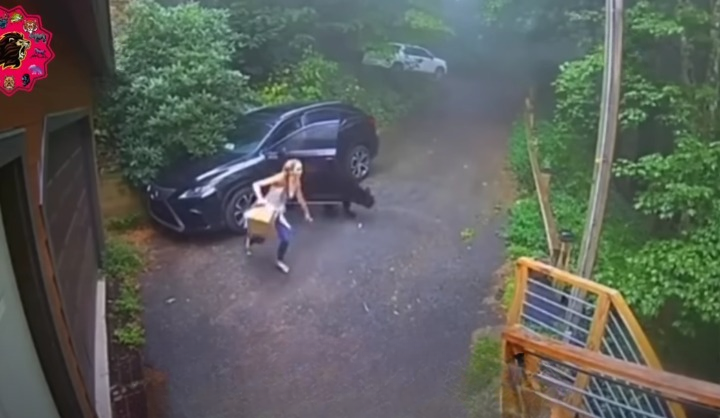I thought inheriting my grandma’s house would bring me peace. Instead, it started a war — one I never saw coming. And the person who lit the match? My own cousin.
My name’s Elena. I’m 27, a freelance illustrator who spends most days sketching in cafés or on my porch with my dog curled up at my feet. It’s a quiet life. A small one. But it’s mine.
My family, though… well, there’s not much left of it.

My mom died in a car accident when I was six. After that, my whole world shifted. I moved in with my grandmother, Lily — I called her Gran. She was everything. Warm, stubborn, gentle, sharp. She hummed constantly and baked cinnamon rolls that could fix any bad day. It was just us.
My dad drifted away after Mom died. Gran called him “a runner,” and she wasn’t wrong.
Gran had another daughter, my aunt Greta, who lived nearby with her daughter, Lydia. Lydia was a year older than me — sharp-tongued, self-absorbed, always perfectly polished, always certain she was owed more than she got. We were never close.
They visited Gran on holidays, sometimes. But they never helped her. They never called. They never showed up when it mattered.
When Gran passed away last spring, I didn’t cry at the funeral — I had already cried all my tears during her final weeks. When the lawyer read the will and I learned she had left me her house, it didn’t surprise me. It just hurt.

The house was small, old, cozy — chipped paint, creaky porch swing, the smell of baked apples trapped in the walls. It was filled with memories of her. And now it was mine.
One gray Tuesday, my phone buzzed. Lydia.
I hadn’t heard from her in months.
“Hey,” she said briskly. “I need a favor. I think Grandma kept some documents of mine at her house. Important ones. I need to get them.”
“What documents?” I asked.
“Just stuff. Can I come by?”

“I’m leaving town tomorrow. Can it wait?”
“No. Just leave me the keys.”
Her tone told me something was off, but she was family. So I agreed. I told her I’d leave the keys under the doormat.
I was gone for one night.
When I returned, the house looked normal from the outside.
Inside, everything was wrong.
The smell hit me first — sour milk and rot. My stomach twisted. The living room looked like a tornado made of fast food had hit it. Wrappers, greasy containers, crushed chips ground into the carpet. Soda spilled everywhere.
Heart pounding, I walked toward Gran’s bedroom.

I opened the door and froze.
Red and black paint smeared across the wallpaper. The bed shredded. Feathers floating through the air. Candy wrappers stuffed into drawers. Greasy fingerprints everywhere.
This wasn’t mess.
It was malice.
I called Lydia.
“What did you do?” I demanded. “Why would you trash the house? Why Gran’s room?”
Silence.
Then her voice, cold:
“Oh, please. You know why. Grandma left the house to you. It should’ve been mine. You don’t deserve it.”
“You barely visited her!” I shouted. “You never helped!”
She laughed.
“Doesn’t matter. You got what I wanted. I made sure you wouldn’t enjoy it.”

She hung up.
Something in me hardened.
For days I cleaned. I scrubbed until my hands ached. I threw out bags of rotting food, scrubbed stains from the floors, hauled ruined furniture to the dump. The house smelled like a mixture of bleach and heartbreak.
The paint in Gran’s room wouldn’t come off, no matter what I tried. So I called painters. I spent money I didn’t have, but when the fresh walls dried, something in my chest loosened.
Still, it wasn’t over.
Lydia thought she could smash my inheritance, my memories, my peace — and walk away laughing.
She was wrong.

I called a lawyer named Michelle. I showed her photos of every room, every mess, every piece of damage. I handed over receipts for cleaning supplies, painters, new furniture.
“This is solid,” she said. “We can hold her responsible.”
And we did.
The court ruled in my favor. Lydia was legally responsible for all the damage. Every penny.
But I didn’t want to just mail her the judgment. No, that wasn’t enough.
I bought a plain cardboard box, tucked the court papers inside, added copies of the receipts, tied it with a pink ribbon, and attached a card:
“From the home you destroyed.”
I left it on her porch.
Ten minutes later, my phone rang.
“WHAT THE HELL IS THIS?!” Lydia shrieked.

“That’s a court order,” I said calmly. “You’re paying for everything.”
“You’re insane!”
“No,” I said softly. “Gran just taught you a lesson. Even now.”
I hung up.
Weeks passed. Checks started coming — small, petty notes scribbled in the corner, insults, sarcasm. I cashed every one.

Meanwhile, the house began to feel like home again. Mine. Quiet. Safe.
Some nights, I’d sit on Gran’s bed and whisper,
“Got her back, Gran. She didn’t win.”
I’m stronger than I thought.
Gran was right about that.



